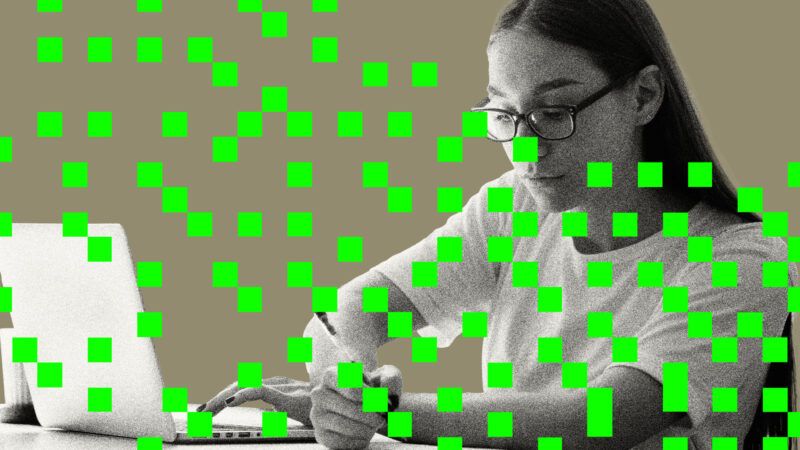Does Spying on Laptops Really Prevent High School Suicides?
Administrators say AI surveillance tech helps struggling students get care. But false alarms are common.

If your child has a school-issued device, there's a good chance that school administrators are using it to spy on them. According to a new investigation from The New York Times, almost half of American schoolchildren are subject to surveillance on their school devices designed to track whether they're at risk for self-harm or suicide.
Federal law requires schools to use content filters on the devices they give kids. However, many popular educational tech companies also offer AI-boosted tools that look at what students are typing and send school administrators alerts if a student displays warning signs of self-harm.
Advocates of these programs say they can help schools identify and get help to struggling students. However, students, administrators, and parents at one Missouri school interviewed by Times reporter Ellen Barry said that false alarms were common. Students told Barry about being "flagged for text messages about hunting trips, historical research into the Ku Klux Klan and, in one case, the Oscar Wilde play 'The Importance of Being Earnest.'" One administrator reported that he arrived at work one day to find 26 alerts stemming from students researching suicide for a class.
Sometimes these false alarms can have severe consequences. One 16-year-old girl and her family said they were woken up in the middle of the night by police officers after administrators were alerted by a poem the girl had written years before. The girl was no danger to herself but was shaken by the experience.
"There were people with guns coming to our house in the middle of the night," the girl's father told Barry. "It's not like they sent a social worker."
It's easy to see how this technology can foster a better-safe-than-sorry mindset among administrators. "The girl's mother said she told the school about the visit, and a guidance counselor explained that she felt she had no choice but to call police," Barry writes. "If she had failed to act, and the girl had harmed herself, she could not have forgiven herself."
Even if students and parents find the surveillance tech invasive, it's easy to see how administrators fear being blamed if a student commits suicide after the surveillance tech is removed. "It is hard to switch it off," even during summer break, Talmage Clubbs, the Missouri school district's director of counseling services told Barry. "I mean, the consequences of switching it off is that somebody can die." Clubbs further told Barry that sorting through and responding to the alerts occupied about a quarter of his work hours, and about a third of other counselors' time.
While it's understandable to want to do everything possible to prevent suicide and self-harm among high school students, there isn't much evidence that spying on them through their laptops helps—or that it's worth invading student privacy.


Show Comments (18)